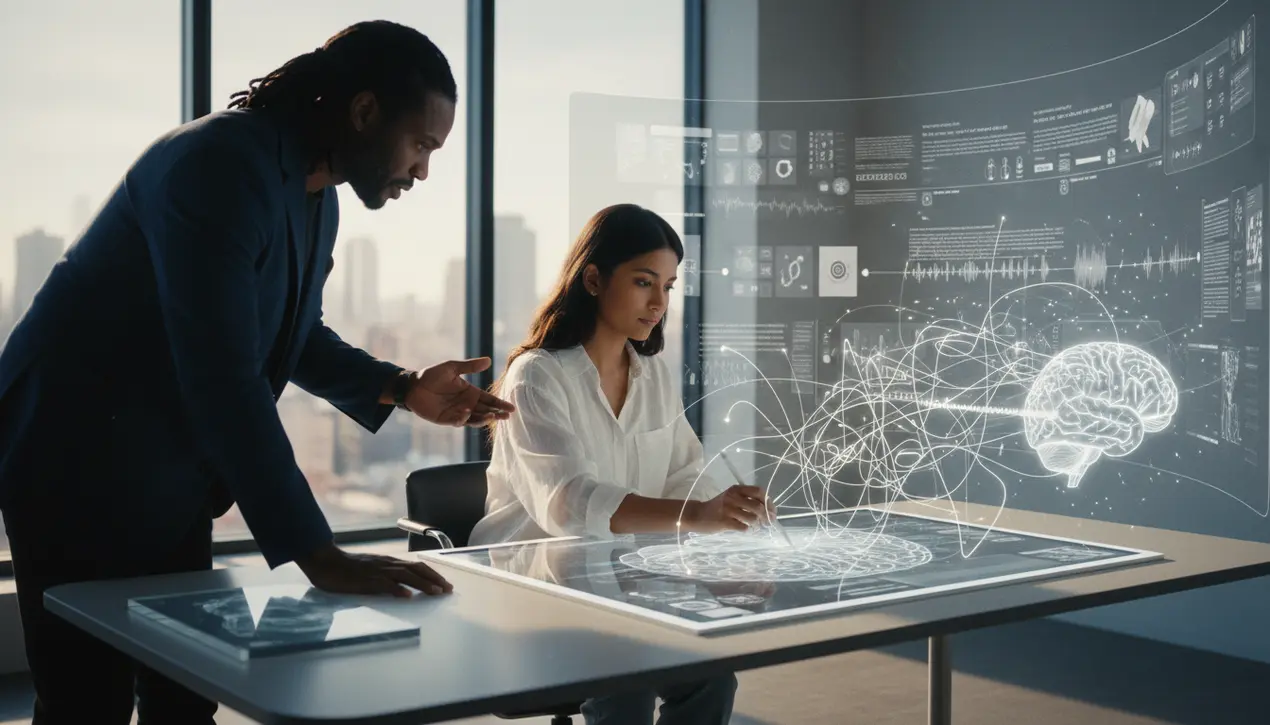
AIgenerative aiAI in Design and Art
AI: The Next Great Catalyst for Human Creativity
SO
Sophia King
4 hours ago7 min read2 comments
History has a consistent habit of repeating itself, especially when it comes to our fear of new technology. In 1826, the invention of the camera sent shockwaves of panic through the artistic community, with many convinced it signaled the death of painting.Instead of destruction, it sparked a renaissance. Liberated from the constraints of realistic representation, artists ventured into bold new frontiers, giving rise to Impressionism's dreamy light, Expressionism's raw emotion, and Cubism's fractured perspectives.The camera didn't replace the artist; it became an essential new tool. Decades later, the personal computer triggered similar anxieties, yet it became the foundation for entirely new art forms—the digital dreamscapes of Pixar, where artists wove code into stories of talking toys and floating houses.When Photoshop arrived, photographers decried it as a betrayal of truth, only to witness an explosion of visual expression that empowered a global generation of creators. So why, in the face of artificial intelligence, do we default to the same tired narrative of obsolescence? The historical evidence is clear: technology does not replace creativity; it amplifies it.AI is not a usurper but the latest collaborator in the creative process. It excels at the mundane—generating intricate backgrounds, composing audio landscapes, or suggesting plot twists—freeing human creators to focus on the essence of art: the soul.That spark of genius, the emotional depth born from lived experience, the resonance that moves an audience to tears or joy—this remains uniquely human. A machine can process data, but it cannot know heartbreak, hope, or nostalgia.The true potential of AI lies in radical democratization. In audio storytelling, for example, AI acts as a creative co-pilot, helping writers maintain narrative consistency, refine dialogue pacing, and transform text into rich, sound-designed audio—capabilities once exclusive to well-funded studios.For countless creators, this is about access, not replacement. It's about the writer who can now bring their story to life and reach millions without a massive budget.The core principle must be building creator-first systems where human authorship is paramount, underpinned by transparency and unassailable creative ownership. We stand at a pivotal moment, much like when Steve Jobs envisioned the computer as a 'bicycle for the mind.' AI can be the bicycle for our creative spirit—a tool that doesn't pedal for us, but empowers our own imagination to travel farther and faster than ever before. The future is not about machines telling stories; it's about empowering more people to tell their stories with greater depth, reach, and impact.
#featured
#AI
#creativity
#technology
#storytelling
#human imagination
#democratization
#editorial picks news
Stay Informed. Act Smarter.
Get weekly highlights, major headlines, and expert insights — then put your knowledge to work in our live prediction markets.
Related News
Comments
Loading comments...
© 2025 Outpoll Service LTD. All rights reserved.